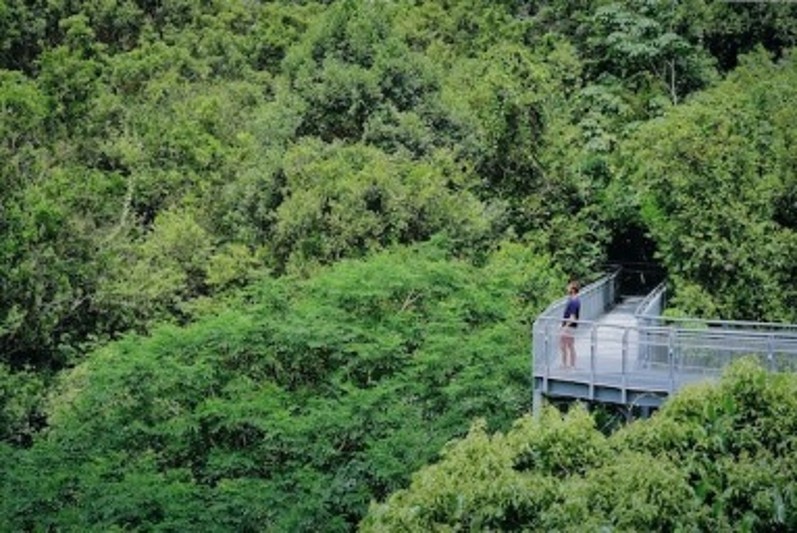Page content
NEWS-Blog

Rainforest conservation, green teams and night trains
Best practices in Malaysia, the Azores and Austria
March 9, 2023
Talking about climate protection is one thing, but actually realising one’s goals is even more important. On Thursday at the ITB Berlin Convention, together with tourism industry practitioners and experts, Xenia zu Hohenlohe and Graeme Jackson discussed how destinations and transport companies could contribute and what best practices already exist. One important takeaway: protecting the climate is no easy task, but sometimes it is possible even in one’s sleep.
In the Glasgow Declaration on Climate Action in Tourism the industry set itself ambitious goals – but whether they will reach them has yet to be seen. Overall, the tourism industry does a lot to protect the climate and biodiversity. One example is the Azores, nine islands in the Atlantic which attract nature lovers especially. "Climate change has created many challenges for us. We could lose endemic species and some of our biodiversity", said Carolina Mendonça, head of Sustainability at Azores DMO.
That is why in 2017 already the Azores decided to get the archipelago certified as a sustainable destination. In order to achieve this, so-called green teams were set up on all the islands to collect ideas for improvements and make them work. “We are currently the world’s only group of islands to be certified as sustainable“, Mendonça said.
The Azores consist of nine small islands, while Borneo is the third largest island in the world. The country’s north, particularly the Sabah region belonging to Malaysia boasts all kinds of flora and fauna. “We have nine national parks, nature reserves and marine wildlife conservation areas which have been protected since the Sixties“, said Noredah Othman, managing director of the Sabah Tourism Board. However, the government does not want to rest on its laurels. A total of 30 per cent of the country’s land surface is to be designated protected by 2025.
According to Noredah Othman, tourism has contributed decisively to the success of these conservation efforts. “Tourism is community-based, so the locals learn that it is important to protect the environment. It also provides them with jobs, as bird-spotting guides for example“, said Othman. Without tourists the conservation projects would quickly be endangered. Thus, during the pandemic a long-established orangutan rehabilitation centre encountered financial difficulties because there were no more tourists visiting Sabah.
For some years Austria’s national railway network Österreichische Bundesbahnen ÖBB has been offering a highly practical alternative to private transport and flying. They have taken over sleepers from Deutsche Bahn and are using them to operate night train services on a number of European routes. “We are now the largest night train operator in Europe“, said Thomas Schönig of ÖBB-Personenverkehr AG. This autumn 33 new Nightjet trains would also be entering service. Working together with destinations was part of marketing the service and was a win-win for everyone involved, Schönig said. “Visitors can enjoy arriving relaxed without giving up holiday time journeying back and forth, while destinations benefit from less traffic and cars on the roads“, Schönig said.
Rainer Heubeck

.svg)
